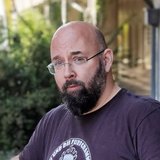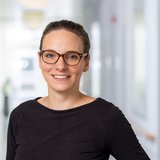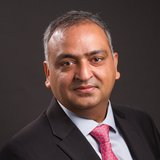
Nicola Aceto
ETH, Zürich
Zürich, Switzerland
visit website
Nicola Aceto is Associate Professor of Molecular Oncology at the ETH Zürich. Previously, he has been Swiss National Science Foundation Assistant Professor of Oncology at the University of Basel.
The Aceto Lab contributed to key discoveries in the metastasis field, including investigations of the biology and vulnerabilities of circulating tumor cells and their clusters, some of which already translated into clinical trials for patients with metastatic breast cancer. Nicola completed his training at the Friedrich Miescher Institute (FMI) in Basel, Switzerland, at the Massachusetts General Hospital Cancer Center and Harvard Medical School, and at the Broad Institute of MIT and Harvard in Boston, USA. To date, Nicola received three ERC Grants (StG 2015, PoC 2018, CoG 2020) and numerous awards related to his work on circulating tumor cells, including the Swiss Science Prize Latsis for Groundbreaking Cancer Research, the Pezcoller Foundation – EACR Translational Cancer Researcher Award and the Friedrich Miescher Award for Outstanding Achievements in Biochemistry. He is an inventor in several patent applications related to the diagnosis and treatment of cancer, advisor for companies with an interest in liquid biopsy, and co-founder of an ETH Spinoff biotech company dedicated to the development of new cancer medicines.

Wolfgang Birkfellner
Medical University of Vienna
Vienna, Austria
visit website
Wolfgang Birkfellner finished his PhD Studies in Medical Physics at the University of Vienna, Faculty of Medicine in 2000. Afterwards, he was a PostDoc Researcher at the Cantonal Hospital Basel, Switzerland (Dept. of Radiology). Following the Venia Docendi in 2004, he became an Associate Professor of Medical Physics at the Medical University Vienna.
Dr. Birkfellner is an expert in image fusion, medical imaging physics, multi-modal imaging and image-guided therapy and is a Principal investigator of several national and international research projects. He is also experienced in integrating medical data sources in medical image fusion software and in development of medical imaging hardware. In addition, Dr. Birkfellner is also the Director of the University Course “Medical Physics”, the only program for the education of board-certified medical physicists in Austria. He is associated with the Technikum Wien as a lecturer of Medical Image Processing since 2005 and is also one of two directors of the PhD Program “Medical Physics” at the Medical University Vienna. Since 2018, he is also a lecturer at the Technical University Vienna.

Katrin Kierdorf
Medical Center, University of Freiburg
Freiburg, Germany
visite website
Katrin Kierdorf studied Molecular Biomedicine at the University of Bonn before joining the lab of Marco Prinz at the University of Freiburg for her PhD. She completed her postdoctoral training at the King’s College London as well as the Imperial College London. Since 2017 she is a principal investigator and junior professor for Neuroimmunology at the institute of Neuropathology at the University of Freiburg.
Her research focuses on different aspects of macrophage development and physiological function. The aim of her work includes the investigation of different molecular signaling cascades that guide the development, and function of macrophages. Furthermore, her and her team want to find out how macrophages control tissue homeostasis. To investigate these aspects, they are not only working with mouse models, but also with the fruit fly Drosophila melanogaster, which is a model to investigate potential candidate genes involved in physiological macrophage function. Moreover, it offers a fantastic genetic toolbox to visualize and modify macrophage function.

Til Wykes
King's College
London, UK
visit website
Dame Til Wykes is a professor and Head of Mental Health and Psychological Sciences at King’s College London and a consultant clinical psychologist at the South London and Maudsley NHS Foundation Trust. She led the UK NHS-wide infrastructure to support mental health research for the National Institute of Health Research (NIHR), was an NIHR senior investigator and now the NIHR Senior Spokesperson on mental health research.
In addition to her scientific studies, grants, and publications, her research has had impact through the development of the CIRCuiTSTM cognitive remediation software and novel co-production methods that are used internationally. She influenced national and international research strategies through the European ROAMER (2015), and UK Mental Health Research Goals projects (2021). She champions Patient and Public Involvement and founded the renowned Service User Research Enterprise which employs excellent researchers with experience of using mental health services. Her influence has been recognised by the British Psychological Society (2014), a GUINNESS WORLD RECORDTM for the Largest Mental Health Lesson, a Damehood from the Queen (2016) and by the EPA for Outstanding Achievement by a Woman in Working to Improve Mental Health Care in Europe. She has been secretary, treasurer, and president of SIRS. She is an elected fellow of the Academies of Medical Sciences, Social Sciences, and the Arts, and has two honorary Doctor of Science degrees. She ran the national campaign for a statutory minimum wage when a PhD student and now campaigns on gender pensions equity in the periods between being a proud grandmother.

Vishwa Deep Dixit
Yale School of Medicine
New Haven, USA
visit website
Son of teachers, Deep grew up in Hisar (northwest India). He studied veterinary medicine in India, and did his PhD research at the University of Hannover, Germany, and postdoctoral research at Morehouse School of Medicine, in Atlanta, and the National Institute on Aging (of the National Institutes of Health), in Baltimore. He currently holds the Waldemar Von Zedtwitz endowed chair and is a professor in the departments of Pathology, Comparative Medicine, and Immunobiology at Yale University. Dixit is also director of the Yale Center for Research on Aging (Y-Age) at Yale School of Medicine.
The Dixit lab studies the interactions between immune and metabolic systems that control inflammation and the process of aging. His team helped establish NLRP3 inflammasome activation as a key mechanism of “inflammaging” and immunosenescence that leads to age-related degenerative conditions including metabolic dysfunction. Dixit and his collaborators have identified that switching the metabolic state from utilization of glucose to generation of fat-derived ketone bodies inhibits inflammation by deactivating the NLRP3 inflammasome and reduces immunopathology. Through its recent work, his laboratory discovered that the moderate restriction of calories in middle-aged humans, which induces negative energy balance, reveals endogenous targets that reign in inflammation and may play a role in enhancing healthy lifespan. Ongoing research in Dixit’s lab is focused on interrogating how the nutrient and energy-sensing mechanisms in a host can be harnessed to identify immunometabolic checkpoints to enhance health and longevity. Dixit’s research has been published in leading scientific journals, and he has been recognized for his work by numerous awards from scientific societies including the National Institute on Aging. Research in the Dixit laboratory is funded in part by the Cure for Alzheimer’s Foundation and the National Institutes of Health.